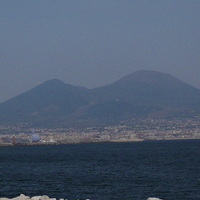Research Interests:
This text analyses my autobiographical play, Psycho-geography: An Exercise to Remember my Future, in which I use recollection and post-memory techniques to recount personal experiences of migration in the United States and France. I... more
This text analyses my autobiographical play, Psycho-geography: An Exercise to Remember my Future, in which I use recollection and post-memory techniques to recount personal experiences of migration in the United States and France. I suggest that self-narrative contributes not only to legitimise my story but it also implies a return to the origins, that though it can be geographical, it is mostly psychic. Based on Judith Butler's conception of the subconscious, postcolonial theories of María Lugones and bel hooks and Mikhail Bakhtin's dialogism of language, I propose that through this return and narrative, the migrant resignifies her experience and appropriates herself of a new, self-chosen identity that is not imposed by the dominant culture; an identity in permanent transformation and that goes beyond identity categories: the identity of the migrant going on traveller.
Research Interests:
Latin-American Colloquium of Non-objectual and Rural Art The plaza outside of the Museum of Modern Art of Medellín MAMM 10 March Deleuze's2017 Guided by a discordant feeling, similar to Deleuze's " discordant play, " I begin this critique... more
Latin-American Colloquium of Non-objectual and Rural Art The plaza outside of the Museum of Modern Art of Medellín MAMM 10 March Deleuze's2017 Guided by a discordant feeling, similar to Deleuze's " discordant play, " I begin this critique with an overview analysis of the text and the dynamics of the performance regarding movement, audience participation, the notion of authenticity and its subversive potential. Then, I briefly delve into the social and institutional relations surrounding the performance. This critique derives from both, my experience of watching the performance live and from attending an informal talk with the performers, organised by the colloquium on the day after the performance. My focus is on reception and to a limited extent, the act of performing. The audience sits or stands anywhere they like around the plaza; there is not a pre-determinately assigned space for them. In the middle of the plaza three performers are throwing and picking the atarraya (fishnet) up and barequeando (to pan for metals, specially gold) repeatedly, while a fourth one reads a text that alternatingly speaks from the first person point of view of displaced peasants, fishermen and barequeros (those who pan for metal), a politician, the land, trees and rivers, etc. It is about 7pm. and it's already dark.
